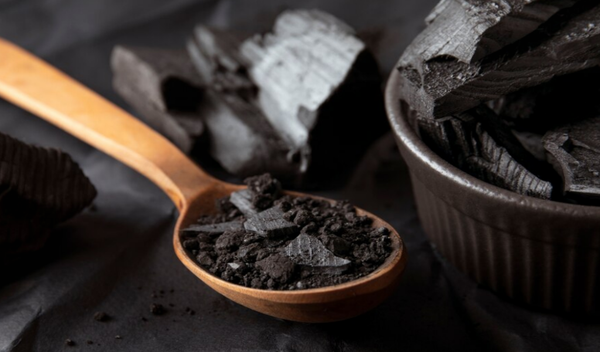
For women who are trying to get pregnant for a while, knowing ways to increase fertility can go a long way in helping them realise their long-standing dreams of becoming parents. There are a few natural ways to enhance one’s fertility. There are also supplements that can help boost women’s gynaecological health. Wellbeing Nutrition has come up with one such supplement -Slow Fertility Vitamins that combine the most powerful nutriscience with plant-based ingredients to provide the body with sustained nutritional support that will help it gradually prepare for pregnancy. But before we get to it, let’s look at 8 simple and natural ways in which women can bolster their fertility.
Different Ways In Which Women Can Boost Their Fertility
Here are a few lifestyle habits that women can make a part of their daily routine to boost their fertility.
1. Eat foods rich in antioxidants
One must consume foods rich in antioxidants such as fresh fruits and vegetables in order to boost their fertility. One of the most vital dietary constituents in enhancing fertility, antioxidants help both men and women. For women especially, antioxidants help protect the ovum (egg) from any potential damage caused due to oxidative stress. Antioxidants like folate, zinc, vitamin C, E and the like, must feature in a fertility diet. Some of the best antioxidant-rich foods include blueberries, strawberries, blackberries, pomegranate, green tea, dark chocolate, cooked vegetables, cranberries, and spices such as cumin, turmeric, ginger and oregano.
2. If you have PCOS, avoid refined carbs and high-sugar foods
If you have PCOS (Polycystic Ovary Syndrome), avoid foods that are rich in refined carbs and sugar as they are absorbed very quickly, resulting in spikes in blood sugar and insulin levels. Insulin levels impact ovaries and ovulation. It also leads to excessive weight gain. Elevated insulin levels can inhibit ovulation and make excess testosterone, which is a common symptom of PCOS and infertility. Therefore consuming too much refined carbs and high sugar foods can lead to the absence of or a drop in egg maturation and ovulation. That is why consuming complex carbs (fibre, whole foods, whole grains) that take longer to digest and absorb into the bloodstream will help better manage PCOS and improve fertility.
3. Exercise regularly
If you are someone who has PCOS or is overweight, regular exercise will help in increasing the frequency of ovulation. This will in turn regulate your menstrual cycles. Once the frequency of ovulation increases, the chances of conceiving automatically goes up. Moderate exercise, between 1 and 5 hours per week, is said to increase fertility in all women.
4. Relax and de-stress
Moderate amounts of stress may not cause women any problems in conceiving, but studies have shown that chronic stress on a regular basis tends to release stress hormones like cortisol and epinephrine, which could severely hamper one’s ovulation. Constant lack of sleep caused due to anxiety or pressure of any kind, may also cause hormone irregularities and eventually infertility. That’s why it is important to find healthy ways to manage stress since it cannot be completely avoided. Meditation, yoga, listening to soothing music, therapy, and indulging in other self care practises are some sure shot ways of constructively managing stress.
5. Maintain Healthy Body Weight
If you want to get pregnant, it’s important that your body weight is within a healthy range. While being overweight doesn’t affect your ability to get pregnant, being obese certainly lowers your potential to get pregnant. When you’re obese, your body weight can adversely affect your hormones. The fat cells tend to produce higher levels of oestrogen, which is likely to delay your ovulation cycle that could further hamper your chances of conceiving. Women who fall under the obese category also tend to have higher levels of a hormone called leptin, produced in the fatty tissue that disrupts the hormonal balance and eventually the chances of getting pregnant.
6. Limit alcohol intake
Research shows that heavy drinking at any given time during the menstrual cycle was notably linked with a lower likelihood of conception when compared to non-drinkers. While there’s no evidence that suggests that drinking can prevent pregnancy, research certainly shows that heavy drinking raises the time it takes to get pregnant and lessens the chances of having a healthy baby. Alcohol intake is also likely to affect sperm count among men. That is why, if one is experiencing problems in conceiving, it makes sense to cut down on their alcohol intake.
7. Opt for more plant-based diet
Studies have shown that a plant-based diet is rich in antioxidants, all essential vitamins, minerals and has been shown to fight oxidative stress and offset the damage done by free radical activity in the body. It also significantly lessens or prevents inflammation in the body. Meat on the contrary, isn’t anti-inflammatory. It will not only help one be healthier, but also improve their chances of getting pregnant and having a normal conception. That is why going in for a more plant-based whole food protein diet is good for fertility and overall good health.
8. Add multivitamins to your diet
Micronutrients like vitamins and minerals are important when it comes to fertility. Sometimes a lack of sufficient nutrients in the body can result in serious deficiencies that could severely hamper fertility. There have been a few studies that have shown that upon taking multivitamins regularly and consistently, women who were finding it difficult to conceive were able to overcome their micronutrient deficiencies and overcome ovulatory infertility.
In such cases, taking dietary supplements really helps. Give Wellbeing Nutrition’s Fertility supplements in the newly launched Slow category a try. These supplements are time conscious capsules in vegan omega oil, which are designed to gradually prepare and nurture the body. These supplements contain a unique blend of water-soluble vitamins with oils and active herbal extracts that ensure you get everything you need to improve your fertility.
This supplement contains B-complex vitamins, phosphatidylserine, magnesium, all of which prepare the body at a cellular level for vitality. Furthermore, it contains ashwagandha and DHA that help regulate hormone levels, reduce inflammation and improve stamina. It also consists of spirulina and vitamin E- vital antioxidants that protect the fertility against the adverse effects of stress, further supporting immune health.
This supplement can be consumed by both men and women to improve their fertility. Ideally 2 capsules a day after a meal will help over a period of time. However, like for every other supplement, ensure you consult a doctor before including it to your everyday routine.
References:
Walker MH, Tobler KJ. Female Infertility. [Updated 2021 Dec 28]. In: StatPearls [Internet]. Treasure Island (FL): StatPearls Publishing; 2022 Jan-. Available from: https://www.ncbi.nlm.nih.gov/books/NBK556033/. (
Roos Marthe Smits, Rebecca Mackenzie-Proctor, Kathrin Fleischer, Marian G. Showell, Antioxidants in fertility: impact on male and female reproductive outcomes,Fertility and Sterility, Volume 110, Issue 4, 2018, Pages 578-580,
ISSN 0015-0282, https://doi.org/10.1016/j.fertnstert.2018.05.028.
(https://www.sciencedirect.com/science/article/pii/S0015028218304291)
Phy JL, Pohlmeier AM, Cooper JA, et al. Low Starch/Low Dairy Diet Results in Successful Treatment of Obesity and Co-Morbidities Linked to Polycystic Ovary Syndrome (PCOS). J Obes Weight Loss Ther. 2015;5(2):259. doi:10.4172/2165-7904.1000259. (https://www.ncbi.nlm.nih.gov/pmc/articles/PMC4516387/)
Evenson KR, Hesketh KR. Studying the Complex Relationships Between Physical Activity and Infertility. Am J Lifestyle Med. 2016;10(4):232-234. doi:10.1177/1559827616641379. (https://www.ncbi.nlm.nih.gov/pmc/articles/PMC5123562/)
Rooney KL, Domar AD. The relationship between stress and infertility. Dialogues Clin Neurosci. 2018;20(1):41-47. doi:10.31887/DCNS.2018.20.1/klrooney. (https://www.ncbi.nlm.nih.gov/pmc/articles/PMC6016043/)
Dağ ZÖ, Dilbaz B. Impact of obesity on infertility in women. J Turk Ger Gynecol Assoc. 2015;16(2):111-117. Published 2015 Jun 1. doi:10.5152/jtgga.2015.15232. (https://www.ncbi.nlm.nih.gov/pmc/articles/PMC4456969/)
Van Heertum K, Rossi B. Alcohol and fertility: how much is too much?. Fertil Res Pract. 2017;3:10. Published 2017 Jul 10. doi:10.1186/s40738-017-0037-x. (https://www.ncbi.nlm.nih.gov/pmc/articles/PMC5504800/)
Kinga Skoracka, Alicja Ewa Ratajczak, Anna Maria Rychter, Agnieszka Dobrowolska, Iwona Krela-Kaźmierczak, Female Fertility and the Nutritional Approach: The Most Essential Aspects, Advances in Nutrition, Volume 12, Issue 6, November 2021, Pages 2372–2386, https://doi.org/10.1093/advances/nmab068. (https://academic.oup.com/advances/article/12/6/2372/6303415)
Schaefer E, Nock D. The Impact of Preconceptional Multiple-Micronutrient Supplementation on Female Fertility. Clin Med Insights Womens Health. 2019;12:1179562X19843868. Published 2019 Apr 23. doi:10.1177/1179562X19843868. (https://www.ncbi.nlm.nih.gov/pmc/articles/PMC6480978/)




























